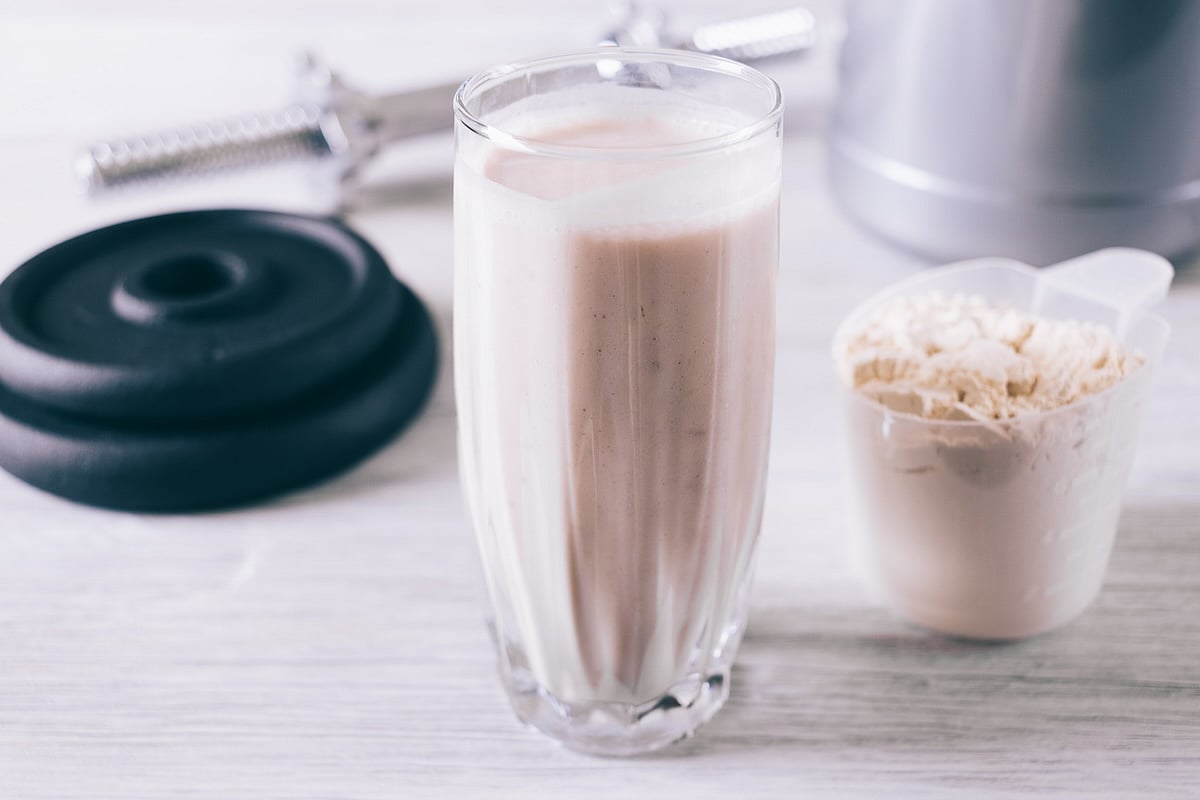Manténgase sano!

- Dennis Thompson
- Posted October 21, 2024
Many Teens Using Protein Bars, Shakes to Boost Muscle
Teenagers are increasingly turning to protein-packed bars, shakes and powders to help them add muscle to their frames, a new study shows.
Two in five parents say their teen consumed protein supplements in the past year, according to the University of Michigan Health C.S. Mott Children’s Hospital National Poll on Children’s Health.
Teen boys more commonly turned to protein supplements, which they were more likely to take every day or most days, parents said.
“Protein is part of a healthy diet, but it can be hard for parents to tell if their child is consuming the right amount,” said Mott Poll co-director Sarah Clark. “Our poll highlights that many teens are using protein supplements, particularly protein powders, to improve their athletic performance and build muscle.”
Boys are more likely to use protein supplements to boost muscle growth and for athletic training, researchers said.
On the other hand, girls more often use protein supplements to replace a meal when they’re on-the-go or to help maintain a balanced diet, results show.
About 1 in 10 parents also indicated their teen used protein supplements to help with weight loss, most often girls.
This additional protein likely is unnecessary for most teenagers, Clark said.
“Despite what some teens -- and their parents or coaches -- think, eating more protein than what your body needs will not result in larger or faster muscle gains,” Clark said in a university news release. “Instead, it’s helpful to consume the recommended amount of protein spread throughout the day, at each meal and snack.”
Despite this, nearly 1 in 5 parents think their teen isn’t getting enough protein, poll results show. More than half of parents think a high-protein diet is healthy for their teen.
However, high-protein diets are not generally recommended for teens, since there’s a risk they might miss other essential nutrients like carbohydrates and fiber, Clark said.
The right amount of protein for each kid varies by age, sex, weight and level of physical activity, Clark says. It can be challenging for parents to figure out whether they’re getting the right amount.
Parents can help by providing at least one source of protein at each meal and encouraging teens to eat healthy protein-rich foods like eggs, nuts, fish, lean meats, lentils and dairy products, Clark said.
“Teens can generally get enough protein through a well-balanced diet,” Clark said. “There may be some situations when teens aren’t eating a lot of food with protein. In these cases, parents may sometimes consider protein shakes or protein bars as part of a plan to increase their teen’s protein intake.”
But parents also shouldn’t assume that high-protein bars or shakes are automatically healthy options, Clark added.
“Many protein shakes and bars have excessive amounts of added sugar and caffeine that are unhealthy for teens,” Clark said. “Parents should help teens read labels of protein supplements and choose healthy options, such as those that contain fiber, with little or no added sugar.”
“Relying on protein shakes and bars might not provide the necessary vitamins, minerals, and fiber teens need; they aren’t meant to replace balanced meals,” Clark added.
Parents also should be mindful of the example they’re setting for their teen, Clark added.
One in three parents said they use protein supplements themselves, and those parents were more likely to report their teen uses them, the poll showed.
The nationally representative poll included responses from 989 parents of teens ages 13 to 17 surveyed in August.
More information
The American Academy of Pediatrics has more on protein for teen athletes.
SOURCE: University of Michigan, news release, Oct. 21, 2024







